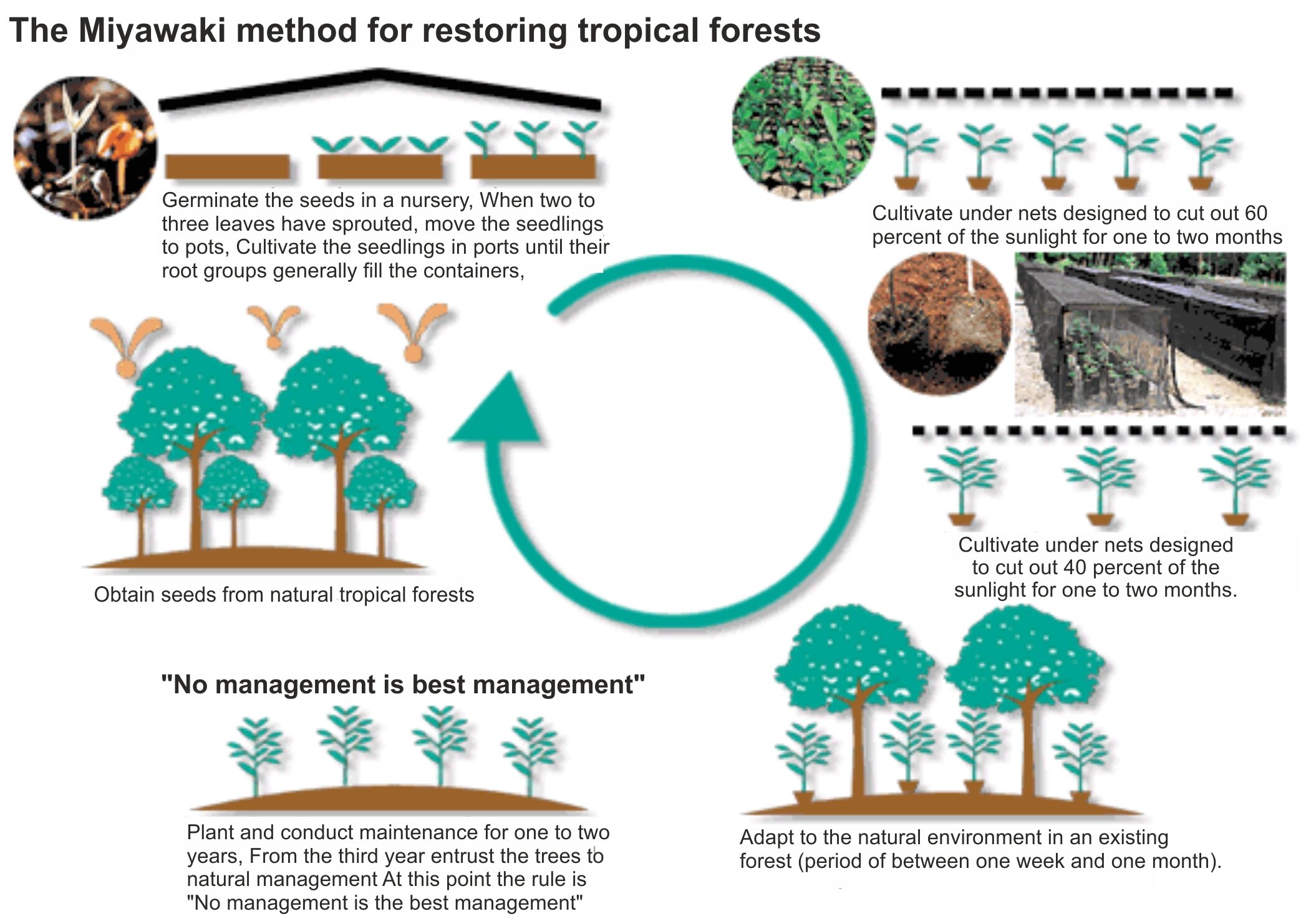Miyawaki Method | 05 Jul 2019
Telangana government has introduced the Japanese “Miyawaki” method of afforestation to grow urban forests and expand the green cover as well as to meet the stipulated plantation target under the Telanganaku Haritha Haaram (TKHH).
- Miyawaki is a technique pioneered by Japanese botanist Akira Miyawaki, that helps build dense, native forests in a short time.
- It has revolutionised the concept of urban afforestation by turning backyards into mini-forests.
- This method includes planting trees (only native species) as close as possible in the same area which not only saves space, but the planted saplings also support each other in growth and block sunlight reaching the ground, thereby preventing the growth of weed.
- The saplings become maintenance-free (self sustainable) after the first three years.
- The approach is supposed to ensure that plant growth is 10 times faster and the resulting plantation is 30 times denser than usual.
- Miyawaki method helps to create a forest in just 20 to 30 years, while through conventional methods it takes anywhere between 200 to 300 years.
Miyawaki Process
- The native trees of the region are identified and divided into four layers — shrub, sub-tree, tree, and canopy.
- The quality of soil is analysed and biomass which would help enhance the perforation capacity, water retention capacity, and nutrients in it, is mixed with it.
- A mound is built with the soil and the seeds are planted at a very high density — three to five sapling per square meter.
- The ground is covered with a thick layer of mulch.
Concerns
- Such forests lack some qualities of natural forests, such as medicinal properties and the ability to bring rain.
- Such fast-growing plantations are actually wood lots (a parcel of a woodland or forest capable of small-scale production of forest products (such as wood fuel, sap for maple syrup, sawlogs, and pulpwood) as well as recreational uses like bird watching, bushwalking, and wildflower appreciation) and cannot be termed as forests.
- Several environmentalists have questioned the efficacy of the method that accelerates the growth of trees and claims to match a forest’s complex ecosystem (as it is not a good idea to force plants to photosynthesize fast).

